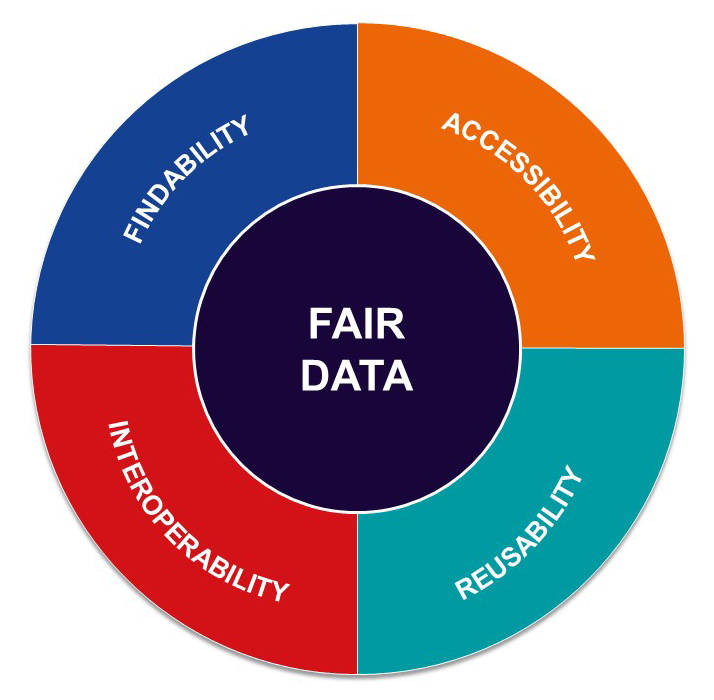The Real Time Economy (RTE) project aims to enable the automation of the transfer of financial data in such a way that as few manual steps as possible are required in their processing and the information is transferred reliably from one operator to another. In building the transaction ecosystem produced by the project, the FAIR Data principles have been taken into account as key guidelines for data management.
FAIR Data aims to support data processing in automating the processes of finding, accessing, sharing and reusing data. Computerized data processing reduces the opportunities for human errors and reduces the time and human resources needed for data processing, which can at best reduce the costs of data processing significantly.
As the name suggests, there are four main principles of FAIR Data, each of which is divided into even more detailed sub-principles:

Findability
Data and its metadata must be easily discoverable for both people and computers. Machine-readable metadata is essential for automatic discovery of datasets and services.
The project enables e.g. finding companies’ transaction capabilities by supporting the introduction of Peppol address and capability libraries in Finland. Companies can search in these libraries, e.g. data and metadata structures for transaction messages that other companies and public actors operating in the Peppol network are able to send and receive.
Accessibility
When the user finds the information he/she needs, he/she must know how to access it, i.e. the availability of the information must be ensured. Availability can also include user authentication and authorization for the information.
To support accessibility, the project builds a uniform model for sharing company data (e.g. register data, tax debt certificate) using electronically verifiable attribute certificates. User authentication related to accessibility has been taken into account, e.g. in the economic ecosystem work carried out in the project and by establishing a separate Peppol authority in Finland that supervises the use of Peppol.
Interoperability
When data is transferred from one organization to another, both the sender and the recipient understand and interpret the information in the same way and the meaning of the information does not change. Interoperability is realized when common definitions, codes and data structures are agreed upon.
One of the goals of the project is to prepare a unified financial concept for the procurement-to-payment process and the digital identity of companies. When creating a unified financial concept, efforts have been made to ensure the semantic interoperability of different international standards, such as the Universal Business Language, Peppol based on it, and e.g. With the standards defined by the UN CEFACT and EU CEN institutions, such as the EU Commission’s eIDAS ARF, which defines the data model for digital identities.
Reusability
The ultimate goal of FAIR data is to optimize data reuse. To achieve data reusability, data and its metadata should be documented as well as possible.
In the RTE project, common data models will be prepared for everyone’s access to the tietomallit.suomi.fi website. It is a tool for information modelers and information architects in public administration organizations which is used to describe the information content and structure of information systems and interfaces. The data models tool makes the logical data modeling work of public data in the public administration open and public, which makes it easier to utilize data models across organizational boundaries. Organizations other than public administration can also use the same data models.
The FAIR Data principles are mentioned in the European Commission’s communication “European Data Strategy (2020)” as a way to implement European interoperability. It is therefore important that the actors participating in the RTE project recognize these data management principles. The same principles are also followed elsewhere, such as in the Nordic Smart Government & Business program, where the focus is on cooperation between Nordic authorities.
Blogged by: Jaakko Martikainen
